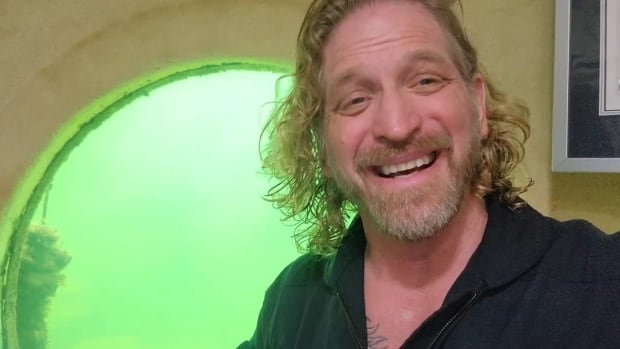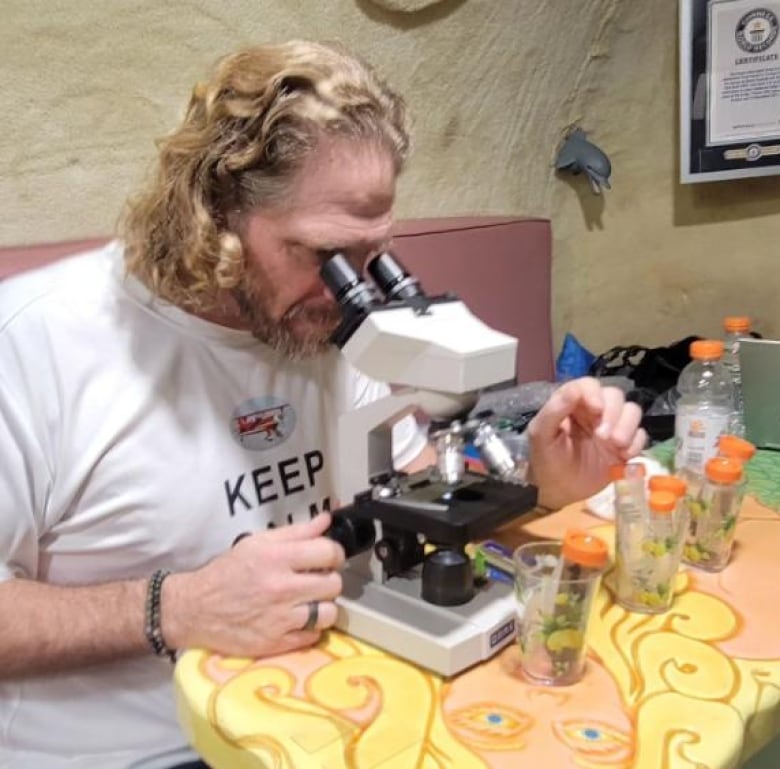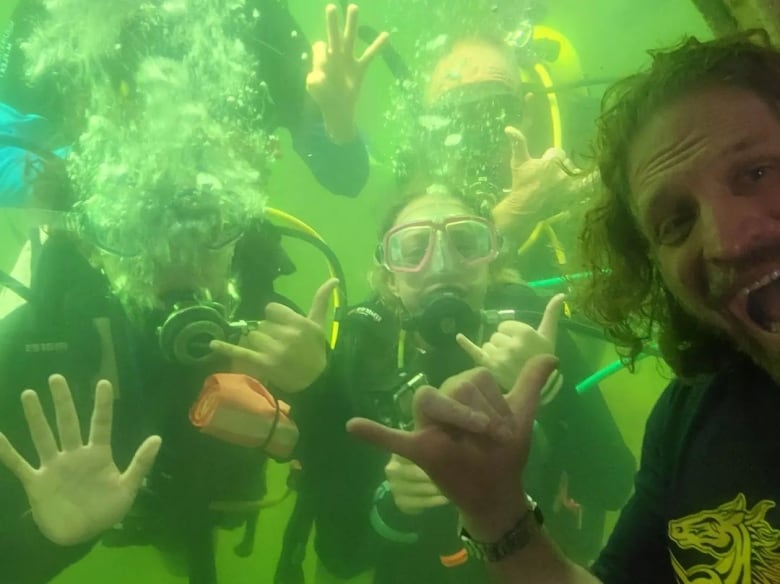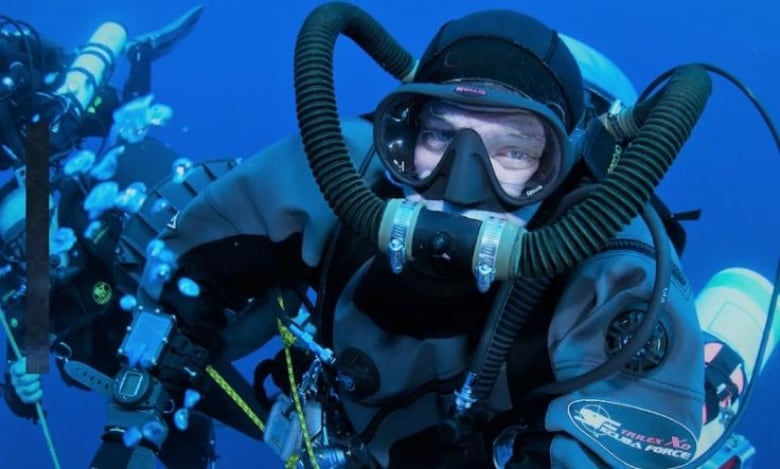
As It Happens6:20Professor living underwater for 100 days says it’s ‘a neat place to be’
Florida professor Joseph Ditiru spends his days doing research, teaching classes, swimming — and making up names for the lobsters outside his window.
“There’s four total that I’ve named so far,” Ditiru told As It Happens host Nil Köksal. “There’s the Partridge Family that lives across the way. I haven’t given them individual names. Then there’s Fred.”
Ditiru doesn’t live on a waterfront — though the beach is pretty close by. Rather, the University of South Florida biomedical engineer currently resides in an underwater habitat about seven metres beneath the ocean’s surface.
The roughly 2.4-by-four-metre abode is the Jules Verne Undersea Lodge at the Key Largo Undersea Park off the coast of Florida.
Anyone can book an overnight stay for $1,125.00 US, but Ditiru is planning to live there full time for 100 days, as part of the Neptune 100 research and education program. Friday was his 10th day.
When it wraps up in June, Ditiru will have the record for the longest time living in an underwater habitat.

From his underwater digs, Ditiru teaches his online university classes, hosts a series of guest marine researchers, does science outreach with groups of visiting children and conducts media interviews.
There are regular food deliveries. He keeps up his exercise by doing push-ups and going for swims — or, technically, scuba dives, as he can’t go above water for the duration of the project.
The rest of the time?
“I sit here and I watch the students swing by with scuba diving people, and fish swim by and lobsters hang out,” he said. “It’s kind of a nice habitat. It’s climate controlled, and I get to do my research while I’m down here, so it’s a neat place to be.”

That research is largely performed on himself.
“Before I went underwater, I did a whole host of testing on myself. And then while I’m underwater, I continue to do that testing. That’s blood tests, urine, saliva — we’re testing every single known test known to man at this point,” he said.
“As we do this, we’re continuing to see what happens to the body when we live on the water.”
The idea, he says, is to prepare humans for long periods in restrictive, high-pressure — literally — environments.
“Everybody says, ‘We’re going to Mars, we’re going to Mars, we’re going to Mars.’ Well, not if we don’t work stuff out,” he said. “I’m in an isolated, confined, extreme environment … and it’s very analogous to space travel.”
He’s also hopeful his research will pave the way for more people to live underwater for longer periods of time.
“Joe’s opinion? You should populate the ocean,” he said. “I think this is the beginning of something beautiful. And hopefully, hopefully it goes forward and people start living in the sea.”
‘Everything that we need is on this planet’
Ditiru says he believes spending time underwater will help humanity better understand our planet, its myriad of life forms and its many untapped resources.
In fact, this whole journey started for him back in 2012, when he joined filmmaker James Cameron’s Deepsea Challenger mission to the bottom of the Mariana Trench — more than 10,600 metres below sea level.

While there, the team discovered a deepsea creature that contains a compound that has potential use in Alzheimer’s treatment.
It got Ditiru wondering: What other unknown treasures are lurking in the ocean’s depths?
“The honest truth is I believe that everything that we need is on this planet,” he said. “We basically just need to go find it.”
But he says he’s cognizant that by expanding into the sea, humans could damage marine environments worse than we already have.
“You have to be an unobtrusive visitor, because that’s what you are. You’re just a visitor,” he said.
After all, he says, that’s how you learn.
“When you lay in the sand and just watch things, that’s when you actually see what’s going on. If you just swim by and kick up all the sand, you know, you’re never going to find out anything that’s going on.”